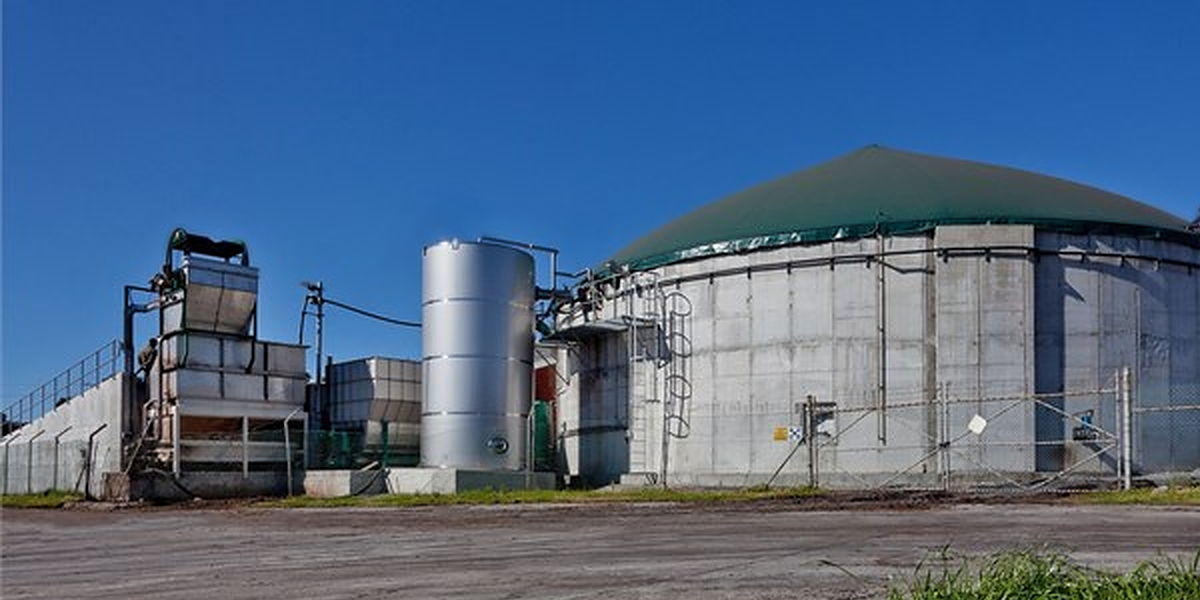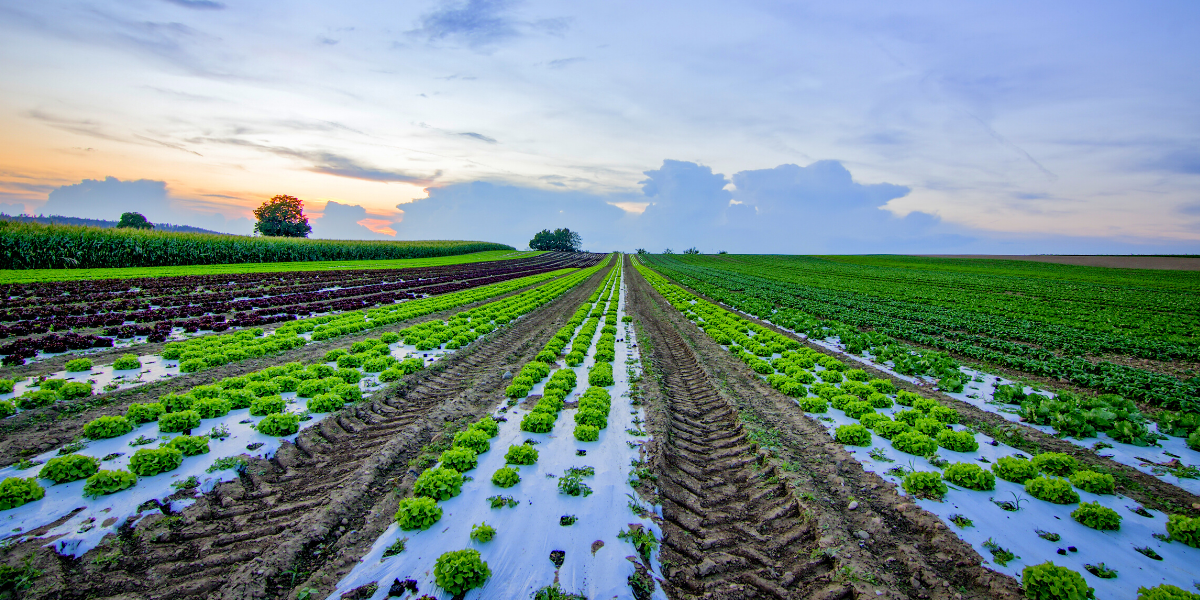
RECIRCULATE research explores ways of improving African rice production and protecting the climate.
Although RECIRCULATE is focussed on the circular water economy, much of our interdisciplinary research and development is also very relevant to helping reduce global heating caused by greenhouse gas emissions. Within the project, the main link between water and greenhouse gas emissions is through our work on anaerobic digestion (AD). As my colleagues have described in other blogs, AD uses organic wastes, including human waste, to generate energy in the form of biogas. The other product of AD- digestate- can then be used as a fertilizer in crop production. So AD is clearly linked to energy and water, but how is it linked to climate change?
In fact, using AD reduces greenhouse gas emissions in at least three ways. The first is probably the obvious one- “Cool1” perhaps. Biogas produced by AD is a sustainable alternative to fossil fuels as an energy source. Of course, when biogas is burned it releases carbon dioxide- CO2. But that’s simply returning to the atmosphere the CO2 that was absorbed by the plants that ended up in the waste material. Unlike fossil fuels, biogas makes no overall addition to CO2 in the atmosphere, and so does not contribute to climate change.
The second reduction-“Cool2”- comes by managing wastes in a controlled way in AD systems. The alternatives are dumping solid wastes into landfill or liquid wastes into rivers or the sea. Both result in organic wastes breaking down in environment, resulting in greenhouse gas emissions to the atmosphere. There is a particular problem that waste in landfill tends to produce methane. If captured, that methane could be a valuable resource. Otherwise, it’s a major problem, not just as a fire risk but because methane is 25-30 times more potent than CO2 in causing global warming.
What is the third link between AD and greenhouse gas emissions? The “Cool3” in my title? Well, the answer is that digestate is an alternative to synthetic fertilizers. It’s often forgotten that manufacturing fertilizers is very energy intensive. It is estimated that fertilizer production accounts for about 1% of all global greenhouse gas emissions. Beyond that, under some conditions nitrogen fertilizers are broken down in the soil to produce nitrous oxide, which is about 300 times more powerful than CO2 as a greenhouse gas. Agricultural soils represent about 80% of the nitrous oxide produced by human activities.
Which brings me to my own research and to rice production in sub-Saharan Africa. Why is that relevant to greenhouse gas emissions and RECIRCULATE’s research into AD? Rice is a very important crop in many African countries and rice consumption is growing faster than any other food crop. Domestic production in sub-Saharan Africa only satisfies about 60% of demand, and most countries are far from being self-sufficient in rice production. The limits on domestic production also leaves many African countries vulnerable to variation in the global rice market. Increased demand elsewhere in the world could raise prices beyond what most of us could afford to pay.
That leads to an obvious conclusion. If African countries are to become self-sufficient in rice production, we need to expand the production area and/or increase yield per unit land area. The highest yields globally are obtained from continuously flooding paddy fields throughout the growing cycle and intensive use of synthetic fertilizers. But simply expanding those current practices across African countries has problems. There are limits to how much water and nitrogen we can use. Water is a limited resource in many countries, and synthetic fertilizers are too expensive for many small-holder farmers. Beyond that, rice paddies are major sources of greenhouse gases. Continuously flooding rice fields creates constant waterlogged conditions that encourage methane production in the soil. On the other hand, if the soil is too dry then that stimulates the production of nitrous oxide from the breakdown of synthetic fertilizers. What we need are cultivation methods that are highly productive and sustainable, so requiring fewer inputs resulting in lower greenhouse gas emissions. How we do that is the question behind my research.
My PhD, funded by Lancaster University as part of its investment in RECIRCULATE, explores water and nitrogen management in rice cultivation. We are also considering how different Ghanaian rice varieties respond to water and nitrogen as well as how variety affects greenhouse gas emissions. One approach we are exploring is deficit irrigation- what my RECIRCULATE colleague Gilbert Osei described recently as “Goldilocks irrigation”. We know from research in Asia that a form of deficit irrigation known as alternate wetting and drying (AWD), where rice fields are periodically allowed to dry, can reduce water use in rice by about 30-50% without reducing yields. Deficit irrigation also reduces methane emissions by 20-80% compared to traditional continuous flooding. But will this work with African rice varieties?
My experiments are based in the Lancaster Environment Centre (LEC) using rice plants cultivated in the glasshouse. Being based in LEC means that I can measure many aspects of plant performance and also collect gas samples to analyse for CH4 and N2O emissions using sophisticated gas chromatography facilities. It’s still early days in my research, but my initial results show that deficit irrigation has no negative effects on Ghanaian rice varieties. There is a lot more to do. For example I want to understand whether reduced methane emissions with deficit irrigation comes at the cost of increased nitrous oxide emissions. That brings us back to what I wrote about AD at the start of this article. Digestate from AD is an alternative to synthetic fertilizers, and I want to explore how its use affects both crop performance and greenhouse gas emissions compared with current practices.
Of course, my results from Lancaster will go hand-in-hand with the crop-scale field trials conducted by our partners at CSIR Crops Research Institute. We bring complementary expertise and facilities to work together to understand how we can deliver robust and efficient rice production for Africa and protect the climate. I know I’m biased, but for me that’s pretty cool any way you look at it!
 |
Ing. Eric Mensah is presently a postgraduate researcher (PhD) at Lancaster Environment Centre, Lancaster University in England, UK. His research interest is focused on enhancing resource use efficiency (particularly water and nitrogen) and mitigation of greenhouse gas emissions in rice paddies. He holds a BSc in Postharvest Technology and an MSc in Tropical Crop Management and Ecology from the Kwame Nkrumah University of Science and Technology (Ghana) and Czech University of Life Sciences, Prague (Czech Republic) respectively. |
All articles in The FLOW are published under a Creative Commons — Attribution/No derivatives license, for details please read the RECIRCULATE re-publishing guidelines.




